Business
Canada avoids Trump’s tariffs – for now
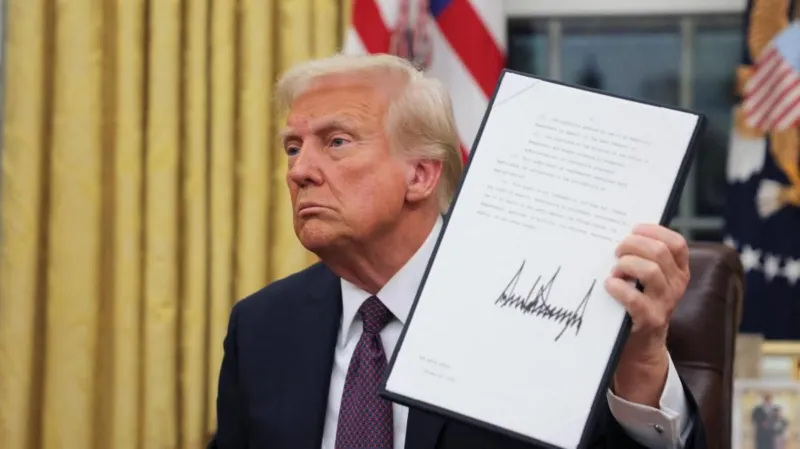
After bracing for weeks for a trade war with the US, Canada has – for now – evaded tariffs that Donald Trump threatened to impose on the country as soon as he takes office.
But Trump said on Monday the tariffs on Canada and Mexico could come on 1 February as he ordered federal officials to review US trade relationships for any unfair practices – including relationships with Canada, Mexico and China.
The incoming president has pledged import duties of 25% on Canada and Mexico, as well as 10% on global imports and 60% on Chinese goods.
Prime Minister Justin Trudeau said on Tuesday: “‘If the president does choose to proceed with tariffs, Canada will respond – and everything is on the table.”
Canadian officials initially appeared relieved at the reprieve the review that Trump has ordered offered, but warned the tariff threat was still real.
Then in the Oval Office late in the evening, Trump told reporters he was considering 1 February as a date his administration might impose 25% levies on Canada and Mexico.
Canada is highly dependent on trade with the US, with roughly 75% of its exports heading south.
Trudeau, speaking to reporters on Tuesday morning, said there was “always going to be a certain amount of unpredictability and rhetoric coming out from this administration”.
He said Canada offered the US “a safe, secure and reliable partner in an uncertain world”.
In an appeal to Trump’s promise of an American “golden age”, Trudeau noted Canada is a source of commodities like energy and critical minerals the “American economy is going to need in order to grow”.
In November, Trump said his administration would impose across -the-board tariffs on Canadian and Mexican goods in an effort to force the countries to crack down on illegal immigration and drug smuggling into the US.
Canada’s Foreign Minister Melanie Joly last week had warned the tariffs could spark the “biggest trade war between Canada and the US in decades”.
Ottawa is preparing counter-tariffs in response to the threat, reportedly worth billions of dollars.
Trudeau said he supports “the principle of dollar-for-dollar matching tariffs”.
Members of Trudeau’s cabinet are gathered in Quebec for two days of meetings focused on the US-Canada relationship.
Canadian officials say they will continue with their efforts to lobby US counterparts on the benefits of trade between the two nations, which totaled an estimated $909bn in 2022.
Business
Trump makes ‘two genders’ and anti-DEI policy official
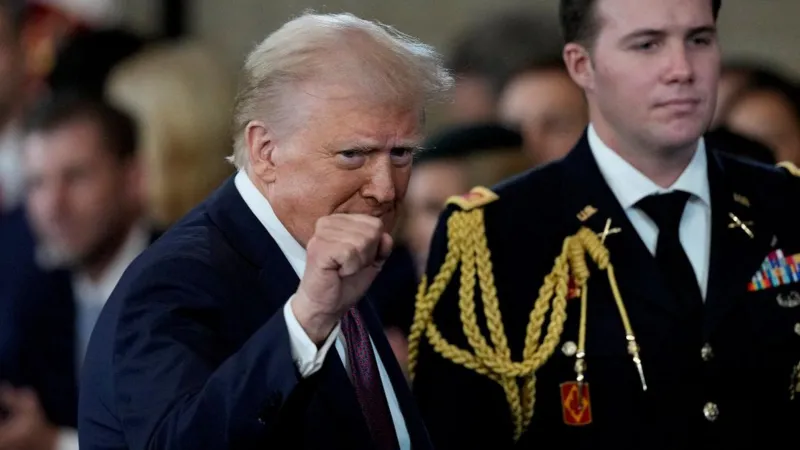
US President Donald Trump issued executive orders shortly after he was sworn in to change the US government’s policies on gender and diversity, following through on promises he made on the campaign trail.
He rolled back orders from the Biden administration that the Trump White House called “unpopular, inflationary, illegal, and radical practices within every agency and office of the Federal Government”.
Two of the orders he revoked included a Biden directive aimed at preventing discrimination based on gender identity or sexual orientation.
Trump also signed an order designating two genders only – male and female – and declaring that they cannot be changed.
“As of today, it will henceforth be the official policy of the United States government that there are only two genders, male and female,” Trump said during his inaugural address earlier on Monday.
Trump has made wider promises about what conservatives decry as “woke” culture, gender and diversity, equality and inclusion (DEI) programmes.
Another directive that he revoked had been designed to address “racial equity and support for underserved communities.”
2:26
Ros Atkins on… Donald Trump’s new diversity policies
An administration official said one of the orders would “end DEI inside the federal government”, cutting funding to DEI programmes across all agencies and including a review of offices renamed because of DEI initiatives.
Several large US companies have ended or scaled back their DEI programmes since Trump was elected, including McDonald’s, Walmart and Facebook parent company Meta.
Others, like Apple and retailers Target and Costco, publicly defended their existing programmes.
DEI supporters see the programmes as a way to correct lingering discrimination based on race, sexuality and other characteristics.
The idea received renewed attention in the wake of racial justice protests after the murder of George Floyd in 2020.
However, the landscape around diversity programmes has changed since 2023, when the US Supreme Court banned US universities from considering an applicant’s race as part of their admissions process.
The policy, known as affirmative action, was intended to counteract historic racial and ethnic disparities in higher education.
Trump’s return to power coincided with growing criticism from the right and religious conservatives of the expansion of transgender rights in the US.
Trump espoused a traditional view of gender throughout the 2024 campaign, and he and his allies attacked Democrats for supporting transgender rights.
Project 47, the official policy platform for the
Business
Instagram hides search results for ‘Democrats’
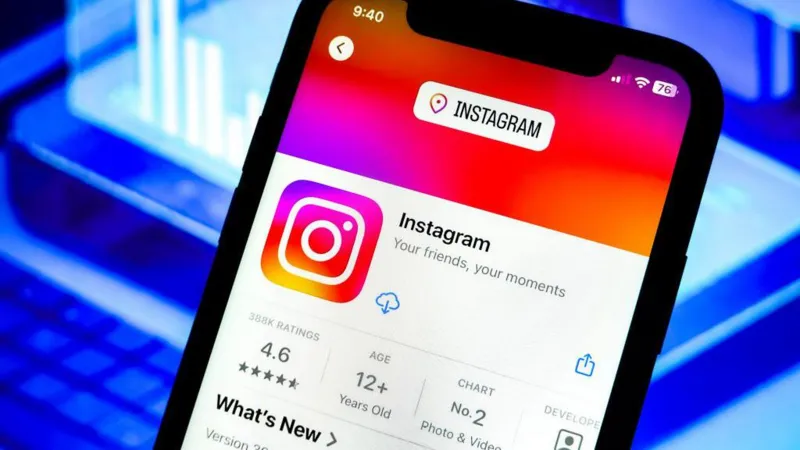
Meta says its working urgently to fix a problem with Instagram which results in a “results hidden” message when users search for the terms “Democrat” or “Democrats”.
Some social media users have accused the company of political bias, pointing out the issue has been occurring after President Donald Trump’s inauguration on Monday, which was attended by Meta owner Mark Zuckerberg.
Meta has insisted that is not the case, saying it is a technical problem which has also affected other hashtags, including a Republican one.
However, social media expert Matt Navarra said it was “embarrassing” for Instagram regardless.
“In a hyper-partisan environment, even unintentional errors like this can escalate into accusations of partisanship,” he said.
“If these issues are not resolved quickly they risk fuelling conspiracy theories and damaging Meta’s reputation.”
While users who type “#Democrat” or “#Democrats” see no results, the hashtag “Republican” returns 3.3 million posts on the social media platform.
By manually searching Instagram for “Democrats”, rather than clicking on a hashtag, users are greeted by a screen reading “we’ve hidden these results”.
“Results for the term you searched for may contain sensitive content,” it says.
There are also limited results when people search for “Republicans” as opposed to “Republican”.
“We’re aware of an error affecting hashtags across the political spectrum and we are working quickly to resolve it”, Meta told the BBC in a statement.
Business
Why is TikTok back after being banned for one day?
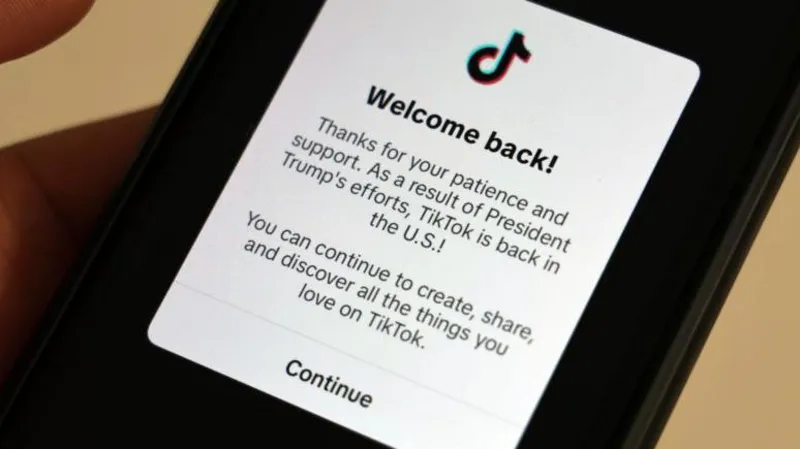
TikTok briefly went dark in the US over the weekend, after the Supreme Court denied a bid by Chinese owner ByteDance to overturn a law banning it.
But it was back after a day with a message thanking incoming president Donald Trump for his “efforts” in restoring the app.
-

 Entertainment5 months ago
Entertainment5 months agoEarthquake scientists are learning warning signs of ‘The Big One.’ When should they tell the public?
-

 International5 months ago
International5 months agoTarar accuses Imran Khan of conspiring with Faiz Hameed to destabilise Pakistan
-

 International3 months ago
International3 months agoPTI Announces Not to Boycott New Committees
-

 Business4 months ago
Business4 months agoMajor Corruption Scandal Uncovered at WASA Multan: Rs1.5 Billion Embezzlement Exposed
-

 Business5 months ago
Business5 months agoThe Impact of QR Codes on Traditional Advertising
-

 Business3 months ago
Business3 months agoHigh Court Blocks MDCAT Merit List Amid Controversy Over Exam Error
-

 Business5 months ago
Business5 months agoThe Benefits and Problems of International Trade in the Context of Global Crisis
-
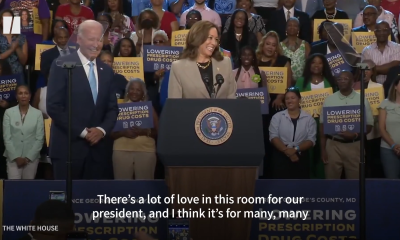
 International5 months ago
International5 months agoGOP Pollster Spots Harris’ ‘Tremendous Advantage’ Over Trump: ‘Does He Want To Lose?’





